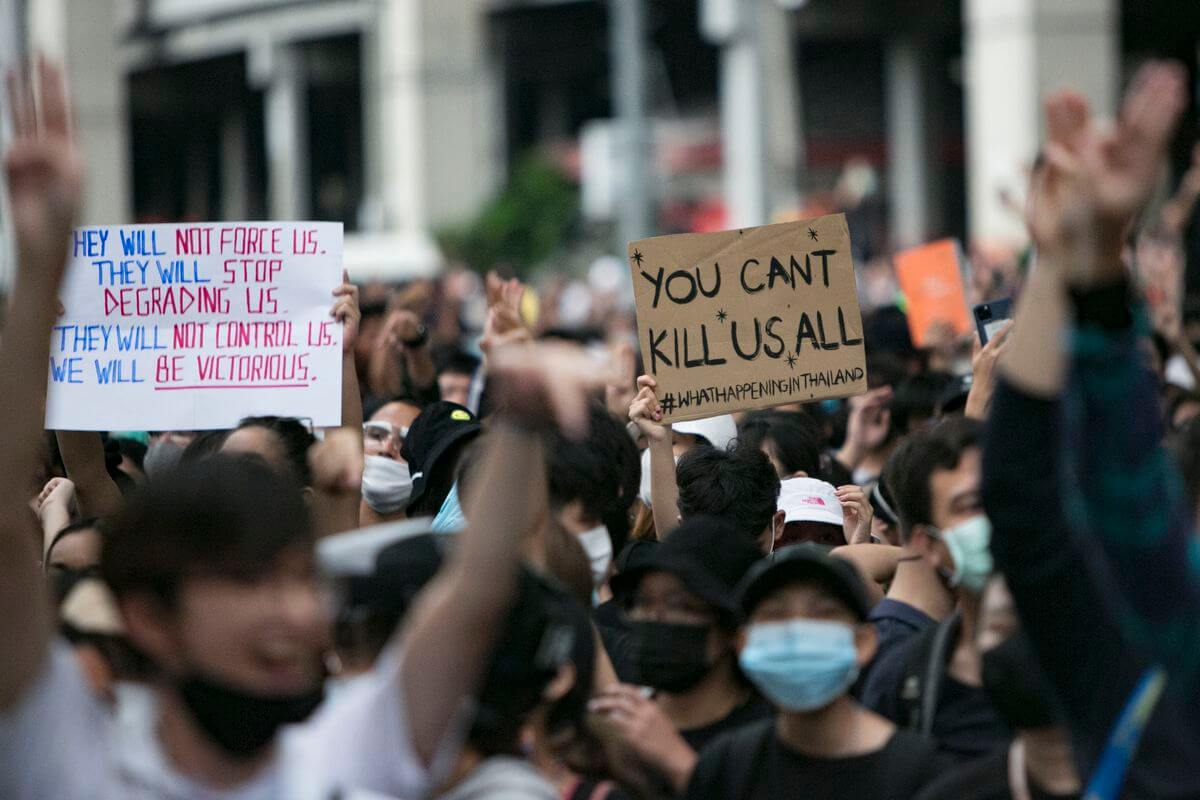Thousands of Thai protestors took to the streets of the capital city of Bangkok on Sunday to protest against a recent decision by a top court that ruled that calling for royal reforms is equivalent to a bid to overthrow the country’s ultra-powerful monarchy.
Defying a ban on local gatherings, protesters assembled in Bangkok’s main shopping district to protest the court’s decision, holding signs that said they do not want an absolute monarchy. “We are not overthrowing this country. The reform is to make it better,” shouted protest leader Thatchapong Kaedam. Other demonstrators also held placards reading “Reform does not equal overthrow.”
In response to the unrest, police briefly clashed with some demonstrators, firing rubber bullets that injured at least two men.
Later in the day, protesters marched to the German embassy to show their displeasure for King Maha Vajiralongkorn’s frequent stays in the European country. In addition, they submitted a letter to the embassy expressing concerns about a return to absolutism. German tabloid Bild reported that the Thai monarch arrived in Bavaria on Monday, along with his entourage of 250 people and 30 royal poodles. The entourage has reportedly booked an entire floor of the Hilton Munich airport hotel for 11 days.
Thai protestors have criticised the country’s highest institution for the king’s extended stays abroad and have called for reforms to curb his wealth and power. They have called for the king to relinquish control of the royal funds and of key army units that he previously brought under his direct command and also argued that the lèse-majesté law, which criminalises criticism of the royal family, must be scrapped.
The most recent protests come after a Constitutional Court ruled last Wednesday that three activists—Arnon Nampa, Panupong “Mike” Jadnok, and Panusaya “Rung” Sithijirawattanakul—made speeches made during a rally at Thammasat University Rangsit campus on Aug 10, 2020, and on other occasions afterwards, that aimed “to overthrow the constitutional monarchy”
The activists had listed 10 demands in their manifesto delivered at Thammasat, including a call for reform of the monarchy and the abolition of Section 112, which is famously known in Thailand as the lèse-majesté law. The court ruled that these demands were in violation of Section 49 of the constitution and ordered the activists to end their movement.
Although the court’s controversial decision does not result in criminal penalties for the protest leaders, it has sparked protests in the country because observers are of the opinion that the ruling could further contract an already-narrow space for activists campaigning for monarchial reforms.
Thailand’s strict lèse-majesté law sets jail terms of up to 15 years for those convicted of defaming the monarchy. According to records compiled by the Thai Lawyers for Human Rights group, at least 157 people have been charged under the law since protests began last year.

